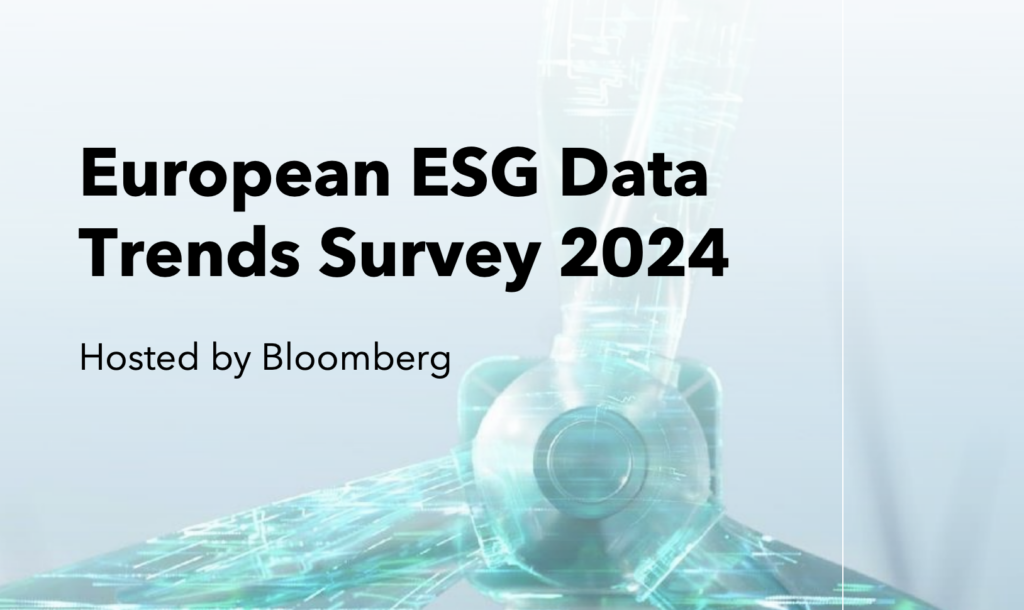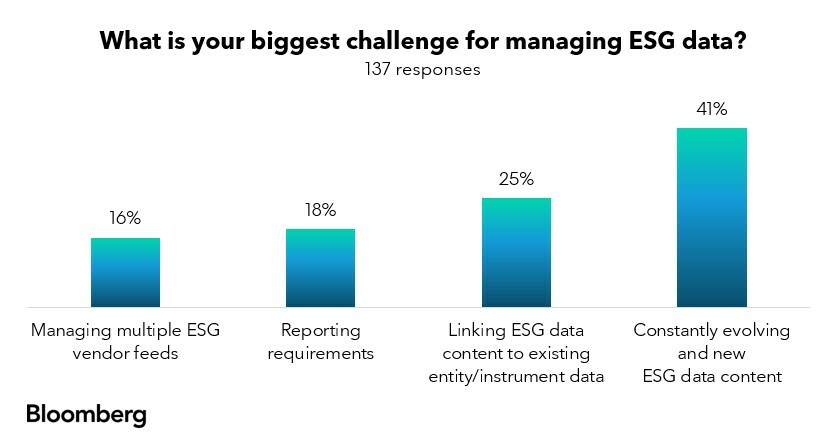Bloomberg Survey Reveals Evolving ESG Data as Top Challenge for European Firms as CSRD Looms

|
Listen to this story:
|
A recent Bloomberg survey of roughly 200 European financial market participants reveals a growing concern: managing the ever-increasing volume of ESG data. The survey, conducted throughout 2023 and encompassing respondents from major European cities like London, Stockholm, Geneva, and Milan, explored various aspects of ESG data prioritization, challenges, and current management practices.

Regulatory Compliance Tops Priorities, But Data Issues Linger
The survey found that fulfilling regulatory requirements is the primary driver (35%) for accessing ESG data, followed closely by meeting climate risk and net-zero objectives (18%). However, respondents also expressed significant concerns regarding the quality and coverage of company-reported ESG data, with 63% citing it as their biggest worry. This is particularly noteworthy given the upcoming implementation of the Corporate Sustainability Reporting Directive (CSRD) in the EU, which is expected to significantly increase the quantity and quality of reported data from companies. While this increased availability is positive, it also necessitates seamless data integration and management to avoid hindering investment decisions.
Managing the Data Deluge: Challenges and Approaches
According to the survey, the most significant challenge in managing ESG data is keeping pace with its constant evolution and influx of new information (41%). Integrating this data with existing entity and instrument data followed closely as the next biggest hurdle (25%), with meeting reporting requirements (18%) and managing feeds from multiple ESG vendors (16%) rounding out the top concerns. Notably, while data coverage gaps pose challenges, onboarding new data sets can be highly resource-intensive, with firms typically only having the bandwidth for this process once or twice annually.
RELATED ARTICLE: Bloomberg Partners with Ørsted in 15-Year Deal to Boost Renewable Energy Production
Centralized Management Takes the Lead, with Diverse Approaches Emerging
In response to these challenges, firms are actively exploring various data management strategies. Roughly a third (38%) opt for centralized management using proprietary solutions, while another third (32%) delegate it to individual business units. Additionally, 10% outsource their data management to third-party vendors, and 20% are still formulating their strategy.
“While data quality and comparability remain global hurdles, data management is becoming a particularly sharp focus for European firms,” stated Nadia Humphreys, Head of Sustainable Finance Data Solutions at Bloomberg. “For companies to effectively utilize ESG data in their decision-making, efficient data organization is crucial. Bloomberg addresses this need by providing our sustainability data in a well-structured format, linked to our industry-leading corporate structure, security master, and other foundational data for ease of use. Furthermore, Bloomberg’s Data License Plus (DL+) ESG Manager is a fully managed service that streamlines ESG data workflows and connects them to the full power of our extensive datasets and offerings from partner vendors, empowering clients to unlock maximum value from their data effortlessly.”
Further Exploration and Resources:
- Access the full survey results here.










